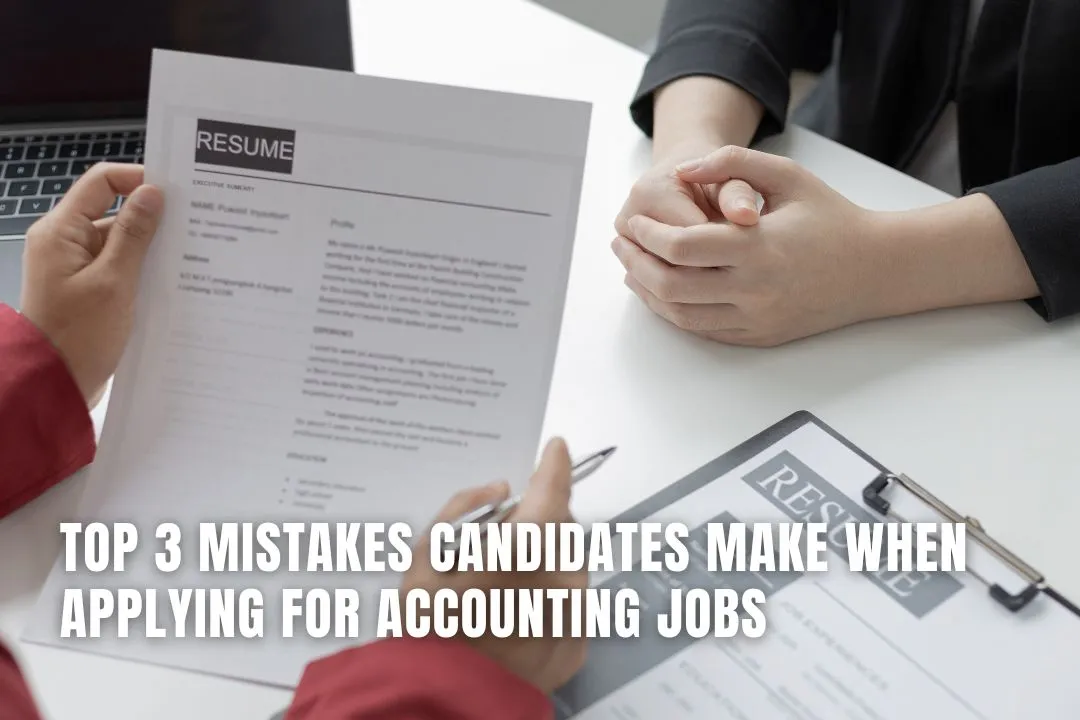
Editorial Disclaimer
This content is published for general information and editorial purposes only. It does not constitute financial, investment, or legal advice, nor should it be relied upon as such. Any mention of companies, platforms, or services does not imply endorsement or recommendation. We are not affiliated with, nor do we accept responsibility for, any third-party entities referenced. Financial markets and company circumstances can change rapidly. Readers should perform their own independent research and seek professional advice before making any financial or investment decisions.
Like most financial sectors in the UK right now, the accounting job market is highly competitive and fast-paced. With firms demanding precision, professionalism, and reliability, your application needs to demonstrate those same qualities from the first interaction. However, many candidates make easily avoidable mistakes that significantly reduce their chances of being shortlisted—even before they’ve had the opportunity to prove their value in person.
To help you stand out in a sea of applicants and make the best impression possible, here are the three most common errors candidates make when applying for an accounting job in finance, and most importantly, how to avoid them.
A CV is more than just a list of previous jobs—it’s your personal marketing document. And yet, one of the most common missteps is submitting a generic, catch-all CV that lacks structure or relevance to the role at hand. Hiring managers often receive hundreds of applications for a single role, so you have only seconds to capture their attention. A vague job description, irrelevant experience, or a confusing layout is a quick route to the “no” pile.
Tailoring your CV to each job is not optional—it’s essential. This means:
For instance, if you're applying for a management accountant role in a manufacturing company, your CV should reflect your knowledge of budgeting, cost control, and sector-specific software—not a detailed breakdown of your retail job during university.
A well-structured CV shows that you understand the importance of clarity and attention to detail—key traits for any accounting professional.
Many candidates wrongly assume that knowing their own work history is enough. But to truly impress in an interview, you need to demonstrate insight into the company, its financial standing, and how you can contribute to its success.
Interviewers are not just assessing your technical ability—they’re also looking at cultural fit, commercial awareness, and problem-solving skills. If you haven’t done your homework, it’s obvious.
Here’s how to prepare effectively:
A candidate who can link their past experience directly to the company’s needs demonstrates foresight, preparation, and initiative—qualities employers prize highly.
It might seem obvious, but exaggerating or falsifying information on your CV or in an interview remains a common and serious error. In a sector that relies heavily on integrity and compliance, any dishonesty can be a career-ending move.
This includes:
It’s important to remember that many employers now use automated screening tools, background checks, and qualification verification software. Any discrepancies can—and likely will—be discovered. Even something minor, like misreporting your university grade, can come back to haunt you.
Instead of trying to hide gaps or limitations, own your career path honestly. Use the opportunity to focus on your strengths, your willingness to learn, and the transferable skills that can add value. For instance, if you’re transitioning from a different area of finance into accounting, highlight your analytical skills, stakeholder communication, or project management experience.
Honesty builds trust. And trust is the foundation of a successful long-term career in accounting
In a crowded and demanding job market like accounting, every detail matters. By focusing on authenticity, preparation, and relevance, you dramatically improve your chances of landing an interview—and securing the job.
Avoiding these common mistakes not only positions you as a stronger candidate but also shows employers that you respect the process, understand their needs, and are serious about your future in the profession. Whether you’re looking to break into accounting or progress to a more senior role, applying smartly can give you the competitive edge you need.
So before you hit “send” on your next application, take a moment to review your CV with fresh eyes, research your prospective employer, and ensure your story is both truthful and compelling. In the end, it’s not about doing more—it’s about doing it better.